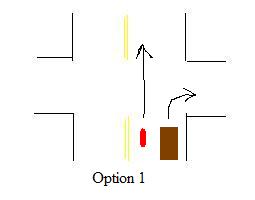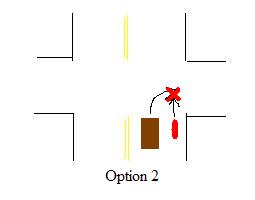

Boldly going forward 'cause we can't find reverse.
powered by performancing firefox
powered by performancing firefox
OK, for all of those ranting about "threats" from GA aircraft, we'll believe that you're really serious about controlling "threats" when you call for:
- Banning all vans within cities. A small panel van was used in the first World Trade Center attack. The bomb, which weighed 1,500 pounds, killed six and injured 1,042.
- Banning all box trucks from cities. Timothy McVeigh's rented Ryder truck carried a 5,000-pound bomb that killed 168 in Oklahoma City.
- Banning all semi-trailer trucks. They can carry bombs weighing more than 50,000 pounds.
- Banning newspapers on subways. That's how the terrorists hid packages of sarin nerve gas in the Tokyo subway system. They killed 12.
- Banning backpacks on all buses and subways. That's how the terrorists got the bombs into the London subway system. They killed 52.
- Banning all cell phones on trains. That's how they detonated the bombs in backpacks placed on commuter trains in Madrid. They killed 191.
- Banning all small pleasure boats on public waterways. That's how terrorists attacked the USS Cole, killing 17.
- Banning all heavy or bulky clothing in all public places. That's how suicide bombers hide their murderous charges. Thousands killed.
Number of people killed by a terrorist attack using a GA aircraft? Zero.
Number of people injured by a terrorist attack using a GA aircraft? Zero.
Property damage from a terrorist attack using a GA aircraft? None.
I agree. The empirical data just isn't there to support a ban.
Humans have evolved a risk assessment mechanism in which we weigh more recent events, and more unusual events, more than less recent, less splashy ones. It's not a terrible proxy when you're in a fairly stable natural environment, where your main threats are things that are likely to recur over long periods and have limited impact. For instance, if you're in an area with sabre-tooth tigers, and you see someone eaten by one, the powerful incentive it gives you not to play with sabre-tooth tigers is a good thing and likely to be useful in the future. And one sabre-tooth tiger can't wipe an entire city off the map before someone reacts to it and deals with it.
Nowadays, though, we have technology, which amplifies everything including risks. And many of those risks aren't apparent without statistical analysis. If we take action using the old instincts, we do so at our peril. Animals use those instincts because that's all they've got. Humans have the capability to perform a more accurate assessment. We also have the need, because resources we use to protect ourselves against one potential threat are resources we're not using for a different one. And some of these risks really can wipe out a city or worse, so we need to deal with them before they happen. In light of those issues, banning light airplanes is a just plain silly waste of resources.
These families are among a growing number of military households in San Diego County that regularly rely on donated food.As the Iraq war marches toward its fourth anniversary, food lines operated by churches and other nonprofit groups are an increasingly valuable presence on military bases countywide. Leaders of the charitable groups say they're scrambling to fill a need not seen since World War II.
. . .
The base's list of recipients swells by 100 to 150 people a month as the food programs streamline their eligibility process, word spreads among residents and ever-proud Marines adjust to the idea of accepting donated goods.
. . .
“The bases are in the more expensive parts of the county and things like gas, food, insurance and rent are just higher here,” Chavez said.
| You Are Scooter |
 Brainy and knowledgable, you are the perfect sidekick. You're always willing to lend a helping hand. In any big event or party, you're the one who keeps things going. "15 seconds to showtime!" |
By measuring this distance change, scientists can derive a picture of mass concentrations on the planet's surface. "We were able to do that every 10 days for Greenland," Luthcke notes. "What we see is a massive amount of mass shedding that far outweighs an interior growth."Additional data confirming the observation comes from a second techinque: laser altimetry.
. . .
In perfect agreement with previous results, these new GRACE measurements revealed that the same three glacial systems--including Kangerdlugssuaq, now one of the fastest moving glaciers in the world--are racing to the sea. "The glaciers are accelerating," Zwally says. "We are now losing 20 percent more coming out each year than goes in as snowfall."
On average, the Nordic countries outperform the Anglo-Saxon ones on most measures of economic performance. Poverty rates are much lower there, and national income per working-age population is on average higher. Unemployment rates are roughly the same in both groups, just slightly higher in the Nordic countries. The budget situation is stronger in the Nordic group, with larger surpluses as a share of GDP.How do these countries do it?
The Nordic countries maintain their dynamism despite high taxation in several ways. Most important, they spend lavishly on research and development and higher education. All of them, but especially Sweden and Finland, have taken to the sweeping revolution in information and communications technology and leveraged it to gain global competitiveness. Sweden now spends nearly 4 percent of GDP on R&D, the highest ratio in the world today. On average, the Nordic nations spend 3 percent of GDP on R&D, compared with around 2 percent in the English-speaking nations.
 Why do I call it "Option 1"? Because I have a choice about where to put the bike at an intersection with a stop sign and, if I'm going straight, I usually use Option 1. After all, if there's cross traffic the car behind me can't get through any faster than I can. And, more importantly, it prevents exactly the situation that the gentleman in question was trying to create, namely Option 2:
Why do I call it "Option 1"? Because I have a choice about where to put the bike at an intersection with a stop sign and, if I'm going straight, I usually use Option 1. After all, if there's cross traffic the car behind me can't get through any faster than I can. And, more importantly, it prevents exactly the situation that the gentleman in question was trying to create, namely Option 2: Let's see--you'd like me to be on the right so you can turn right and cut me off? Um, no thanks.
Let's see--you'd like me to be on the right so you can turn right and cut me off? Um, no thanks.[Phillip Morris's public relations agency] APCO warned that: "No matter how strong the arguments, industry spokespeople are, in and of themselves, not always credible or appropriate messengers."The excerpt also discusses Exxon's role in the campaign. You may remember I wrote about their hiring Philip Cooney. According to the book, which uses data from ExxonSecrets.org, they also fund JunkScience.com and a number of organizations.
So the fight against a ban on passive smoking had to be associated with other people and other issues. Philip Morris, APCO said, needed to create the impression of a "grassroots" movement - one that had been formed spontaneously by concerned citizens to fight "overregulation". It should portray the danger of tobacco smoke as just one "unfounded fear" among others, such as concerns about pesticides and cellphones. APCO proposed to set up "a national coalition intended to educate the media, public officials and the public about the dangers of 'junk science'. Coalition will address credibility of government's scientific studies, risk-assessment techniques and misuse of tax dollars ... Upon formation of Coalition, key leaders will begin media outreach, eg editorial board tours, opinion articles, and brief elected officials in selected states."
(1) UNLAWFUL ENEMY COMBATANT- (A) The term `unlawful enemy combatant' means--§ 948a(1). So the President has the power to declare people enemy combatants. It looks like § 950g gives the D.C. Circuit Court of Appeals jurisdiction to hear appeals, and the Supreme Court after that, so at least there's some judicial oversight. However,
(i) a person who has engaged in hostilities or who has purposefully and materially supported hostilities against the United States or its co-belligerents who is not a lawful enemy combatant (including a person who is part of the Taliban, al Qaeda, or associated forces); or
(ii) a person who, before, on, or after the date of the enactment of the Military Commissions Act of 2006, has been determined to be an unlawful enemy combatant by a Combatant Status Review Tribunal or another competent tribunal established under the authority of the President or the Secretary of Defense.
(b) Standard for Review- In a case reviewed by it under this section, the Court of Appeals may act only with respect to matters of law.§ 950g. Beyond that,
(c) Scope of Review- The jurisdiction of the Court of Appeals on an appeal under subsection (a) shall be limited to the consideration of--
(1) whether the final decision was consistent with the standards and procedures specified in this chapter; and
(2) to the extent applicable, the Constitution and the laws of the United States.
(a) Finality- The appellate review of records of trial provided by this chapter . . . are final and conclusive. Orders publishing the proceedings of military commissions under this chapter are binding upon all departments, courts, agencies, and officers of the United States, except as otherwise provided by the President.§ 950j. The bottom line? Avoid being wrongfully accused.
(b) Provisions of Chapter Sole Basis for Review of Military Commission Procedures and Actions- Except as otherwise provided in this chapter and notwithstanding any other provision of law (including . . . any . . . habeas corpus provision), no court, justice, or judge shall have jurisdiction to hear or consider any claim or cause of action whatsoever . . . relating to the prosecution, trial, or judgment of a military commission under this chapter, including challenges to the lawfulness of procedures of military commissions under this chapter.